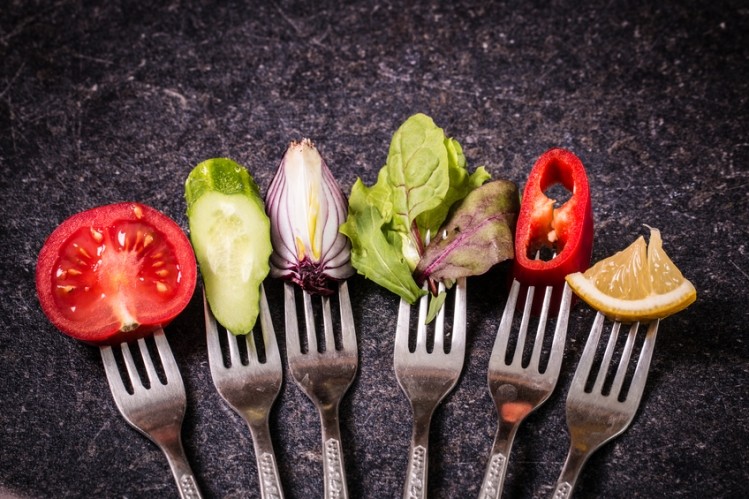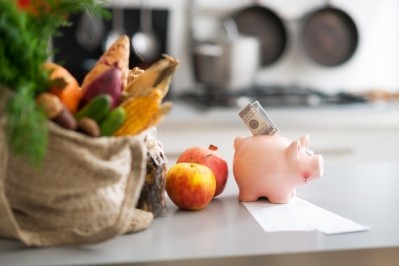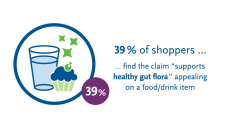'Feeding the world and saving it’: UK food sector backs veg consumption

The UK ranks the eighth worst in Europe for fruit and vegetable consumption, according to Euromonitor International. And consumption is in decline. Food Foundation data shows currently 80% of adults and teenagers and 95% of children eat fewer than 3.5 portions a day.
Peas Please, an initiative backed by NGOs including the Food Foundation and WWF, wants to reverse this trend.
The initiative aims to bring together UK farmers, retailers, fast food and restaurant chains, caterers, processors and government departments with a common goal of making it easier for everyone to eat veg.
Peas Please is focused on improving the availability, affordability and quality of vegetables offered in supermarkets, shops, schools, restaurants and fast food outlets.
Following its launch in 2017, the initiative has secured commitments from 41 pledgers (including Greggs, Iglo Group owned Birds Eye and Nestle) and helped sell nearly 4.8 million additional portions of veg, Peas Please claimed in its progress report, released at the 2018 Vegetable Summit.
Win-win: Planet and people
Higher vegetable consumption will help battle non-communicable diseases like obesity, type 2 diabetes and cancer, the organisation believes.
It will also reduce reliance on animal-based foods, thereby improving the sustainability of the overall food system, WWF executive director for advocacy at WWF Tony Juniper stressed delivering the keynote speech at the event in London this week.
“From being the main cause for deforestation to the pollution of rivers with chemicals and soil, how we feed ourselves is the biggest factor behind the loss of wildlife. Livestock products have an especially high impact. An area roughly the size of Africa is now used up in producing meat and dairy products. Farm animals are also a major source of climate changing pollution, and as incomes rise so demand for meat and dairy products is going up too," Juniper warned.
“The good news is that reducing demand for animal products is one of the most powerful ways we have for both feeding the world and saving it."
Additional retail commitments
In 2017 Peas Please secured the backing of a number of the country’s large retailers, including the Co-Op, Lidl, Sainsbury’s and Tesco – and support is growing.
Pledges from the UK supermarkets involve delivering more vegetable products, increasing veg marketing and prioritising in-store positioning of vegetables in order to increase consumption
The initiative revealed that Aldi, Asda and Waitrose have now made additional commitments.
Waitrose has pledged to recommend other vegetables each time a customer puts a vegetable in their online basket.
"We believe there are few things more important than the food we eat. That's why we're committed to encouraging shoppers to incorporate a rainbow of veg into their and their family's diets - through inspiring products, recipes and events,” said Moria Howie, nutrition manager at Waitrose.
Aldi will run 12 dedicated TV campaigns to highlight promotions on fruit and vegetables. The discounter will also position vegetable offerings in higher footfall areas of its stores.
Julie Ashfield, MD of buying at Aldi UK, explained: “Our new store layout dedicates more space for fresh produce.
“Working with Peas Please gives us the opportunity to help our customers increase their consumption of fresh vegetables. We will also continue our work on developing recipe ideas to share with and inspire customers.”
Ready meal reformulation and innovation
Peas Please has identified the ready meal sector as an area of the market where reformulation and innovation efforts to increase vegetable consumption can make a real difference.
In 2017, UK consumers spent £4.7 billion on ready meals in the UK, an Eating Better briefing revealed. However, only a third of ready meals include a portion or more of veg.
Iglo Group owned frozen food brand Birds Eye has pledged to launch new vegetable-based ready meals and increase vegetable portions in existing ranges.
“The best way to achieve a healthy, nutritious diet is to eat a wide variety of different foods that provide the range of nutrients that the body demands. Vegetables are often the only natural source of these nutrients, and buying frozen vegetables is a great way to aid vitamin retention and reduce food waste,” Birds Eye marketing manager Pete Johnson said.
“Recently, we launched our Veggie Bowl range of ready meals to make consuming vegetables more appealing; each serving contains two portions of an individual’s recommended five-a-day. Because they are frozen, they contain no artificial preservatives, colours or flavours,” he added.
Meanwhile, foodservice wholesaler Castell Howell wants to increase the availability of pre-prepared meals that contain more vegetables. CRS manager Edward Morgan commented: “As an intermediary in the foodservice supply chain we are in a position of responsibility to work with both customers and suppliers to find and deliver solutions that provide nutritional gains to the final consumer.”

























